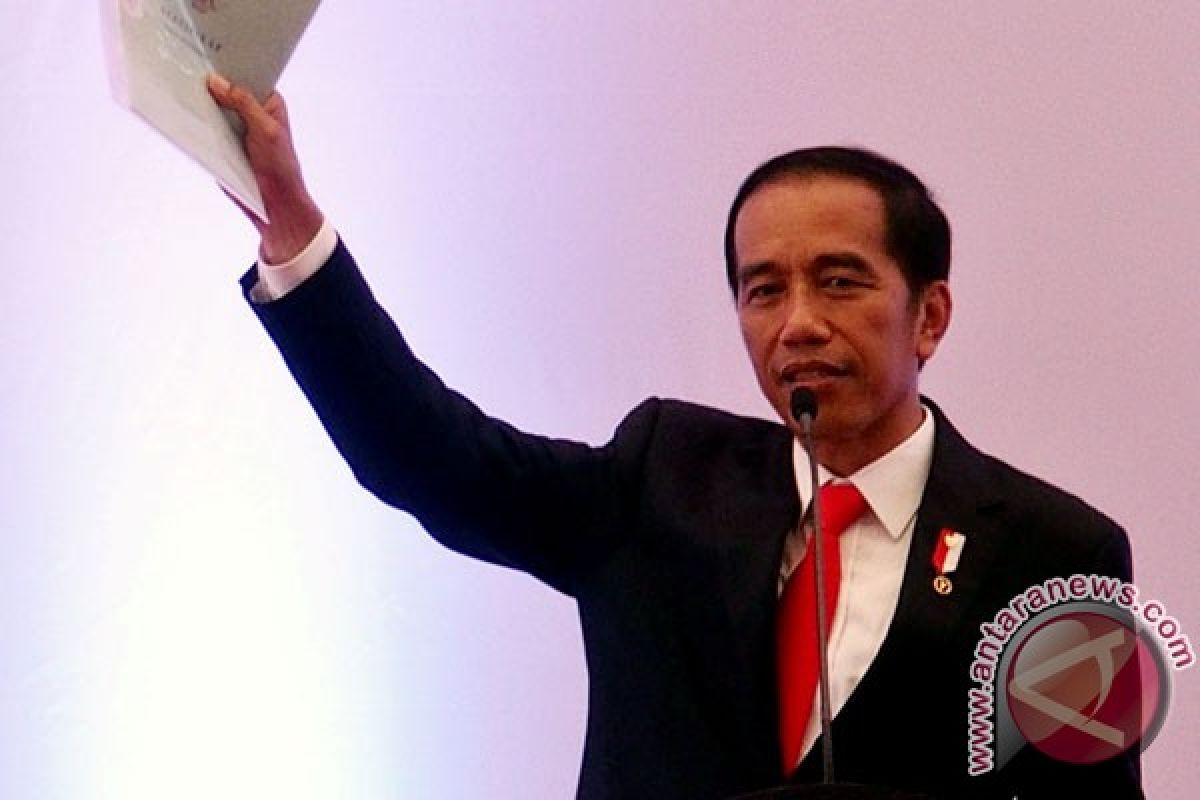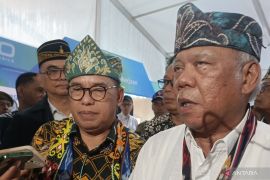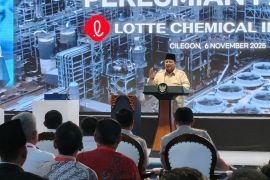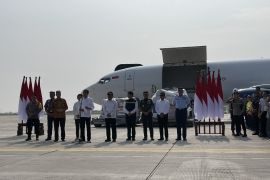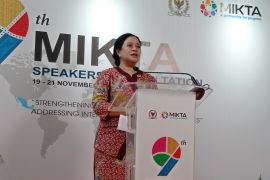"Improvement in public services on driving license (SIM), vehicle registration documents (STNK), and vehicle ownership documents (BPKB) must be done continuously. The public services should be conducted quickly and easily," Jokowi said here on Monday.
The president lauded the national polices efforts to improve public trust.
"The speed of service has become one of the keys for improving public trust," the president remarked.
In addition, he underlined the importance of political stability, security, and the current level of economic growth.
The president expressed his optimism that Indonesia would become the world's fourth-largest economy by 2045.
By 2045, Indonesia will have reached its 100th year of independence, have a population of 309 million people, an economic growth of 6 percent, and gross domestic product of US$9.1 trillion.
Furthermore, Indonesia's income per capita is predicted to reach $29 thousand.
Meanwhile, Jokowi highlighted the stability of food prices too.
"Food is the key to the welfare of the people. If food prices rise, then there will be social instability. Therefore, it is our duty to maintain the stability of food prices," he affirmed.
Jokowi urged the police to be concerned about crimes related to food.
"The crime should not interfere with the distribution of food," the president revealed.
Indonesia ranks first for public trust in the government based on data released by the Organization for Economic Co-operation and Development (OECD) in its report Organization at a Glance 2017, published on July 17, 2017.
"It is true that Indonesia ranks first in terms of public trust and confidence in the government based on the Gallup data released by the OECD," Finance Minister Sri Mulyani Indrawati earlier noted.
The achievement has been reported to Jokowi. The report summarizes the various indicators of public sector achievement from OECD countries as well as several other nations, including Indonesia.
"The level of confidence in the government is influenced by factors, such as whether the people view the government as reliable, responsive, and equitable and is able to protect them from risks and provide effective public services," Indrawati explained.
The level of public confidence in the Indonesian government in 2016 had reached 80 percent, up by 28 percent as compared to 52 percent in 2007.
The level of confidence in the Indonesian government is high as compared to developed OECD countries, such as the US at 30 percent; Britain at 31 percent; Germany, 55 percent; and France, 28 percent and non-OECD developing countries, such as India at 73 percent; Brazil at 26 percent; and South Africa at 48 percent.(*)
Editor: Heru Purwanto
Copyright © ANTARA 2017
